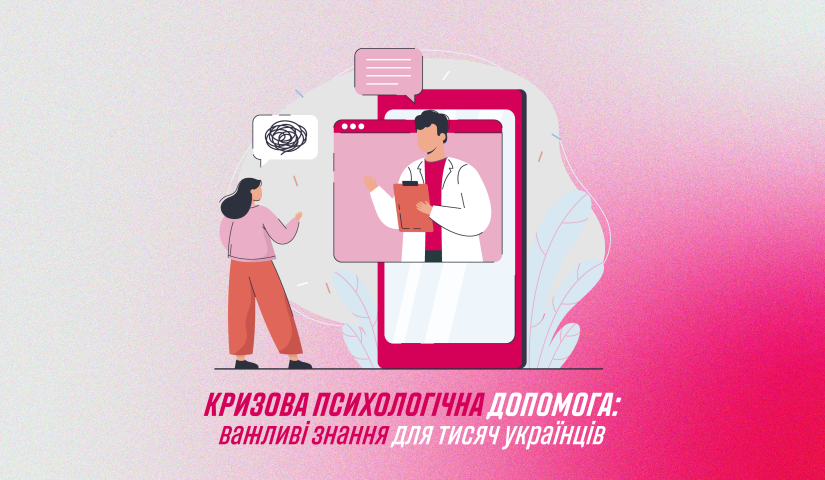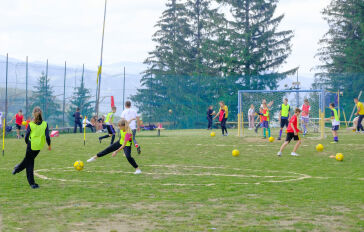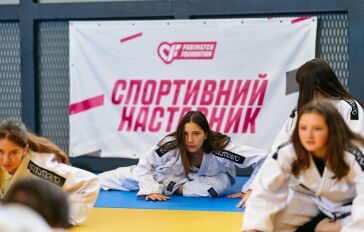
Help may be different. For those fleeing war or accepting refugees, some things other than having your own bed, warm meal or hygiene products are often important as well. It is also important to be understood, to get advice on how to act in certain situations that you have not faced before, how to communicate with those who have lost everything or what to do if you are the person who have lost everything.
People need people.
This is especially relevant when talking about qualified specialists who can quickly and efficiently provide appropriate help in a crisis situation. The need for additional training for psychologists with the emphasis being placed on overcoming the trauma of war was the impetus for the launch of a course in the specialization of Crisis Psychological Assistance, which was initiated by the Parimatch Foundation in conjunction with the Israeli Trauma Coalition.
With the start of the full-scale invasion, the international charitable foundation Parimatch Foundation changed the focus of its social programs to help Ukraine and Ukrainians affected by the war. One of the priority areas of work was the projects implemented within the framework of the comprehensive program of the Mental Health Foundation and the memorandum signed with the Ministry of Education and Science of Ukraine. The purpose of launching the educational course was the need to share with Ukrainian psychologists effective crisis assistance techniques that are necessary when working with internally displaced persons of different age categories during the war.
Over the six months of the project implementation, more than 300 specialists from inclusive resource centers from six regions of Ukraine, namely Lviv, Ternopil, Ivano-Frankivsk, Chernivtsi, Kyiv and Chernihiv regions, have completed the course, the materials of which contain psychological and emotional first aid protocols that are used in Israel, the US and the UK, including self-help methods, assessments, techniques for working with acute reactions and trauma.
The choice of the regions was not random. These are the regions with the largest number of internally displaced persons, who, since the start of the war, have been forced to leave their hometowns due to the hostilities. The project was implemented in the regions with the support of the Departments of Education and Science.

— For many specialists, our course has become a challenge, — shares Denys Denysenko, one of the lecturers of the project, a psychologist, certified Gestalt therapist and organizer of humanitarian aid for the population in crisis situations. — Most of them worked in the field of long-term psychotherapy, long-term care. At the same time, we focused on the knowledge of how to provide fast psychological help, how to relieve body tension, how to work with cognitions, not emotions, how to work with thoughts and with catastrophization.
Simple effective mechanisms received the greatest response among the psychologists: how to regain control over the situation, how to regain control over the body, what to do when a person is in an acute stressful reaction or in an acute stress disorder. These techniques do not require much time or a lot of therapeutic work, but they are effective, since they make it possible for a person to rely on their own resources, to regain control over life and reactions to stress.
I believe that the more psychologists understand such simple algorithms, the more our nation will be prepared to withstand such long-term stress. However, there is a lot of work ahead of us to teach psychologists to work specifically with the trauma of war.
After completing the “Crisis Psychological Assistance” course, the psychologists and specialists of IRC were able to work directly with internally displaced persons — people who suffered from military actions or experienced the loss of a loved one.
More than 16,600 Ukrainians of different age categories have gone through the program and have received, and continue to receive, psychological counseling from the specialists who have completed the educational course. And what is crucial, people trust the certified specialists and continue to seek help.
— Now we all need to tune in to the marathon mode, this will not end quickly, we should not expect that everything will just stop, that we will win quickly, this is a long-term story, — notes Denysenko. — We need to understand that there is a mechanism for adapting to stress in the human psyche. After a while, we will slow down and will perceive it less emotionally and more judiciously.
— We are keenly aware that the need for psychological rehabilitation for people affected by the war is one of the top priorities. Therefore, from the first days of the war, the Foundation has been implementing complex solutions: the transition from low-threshold services to health, education, sports development and leisure for children.
The mental health of people is one of the main elements in their rehabilitation and adaptation in a new stage of life. The Foundation was able to join forces with the best specialists to create a special training course that helped thousands of Ukrainians find balance and start living in a new way.






